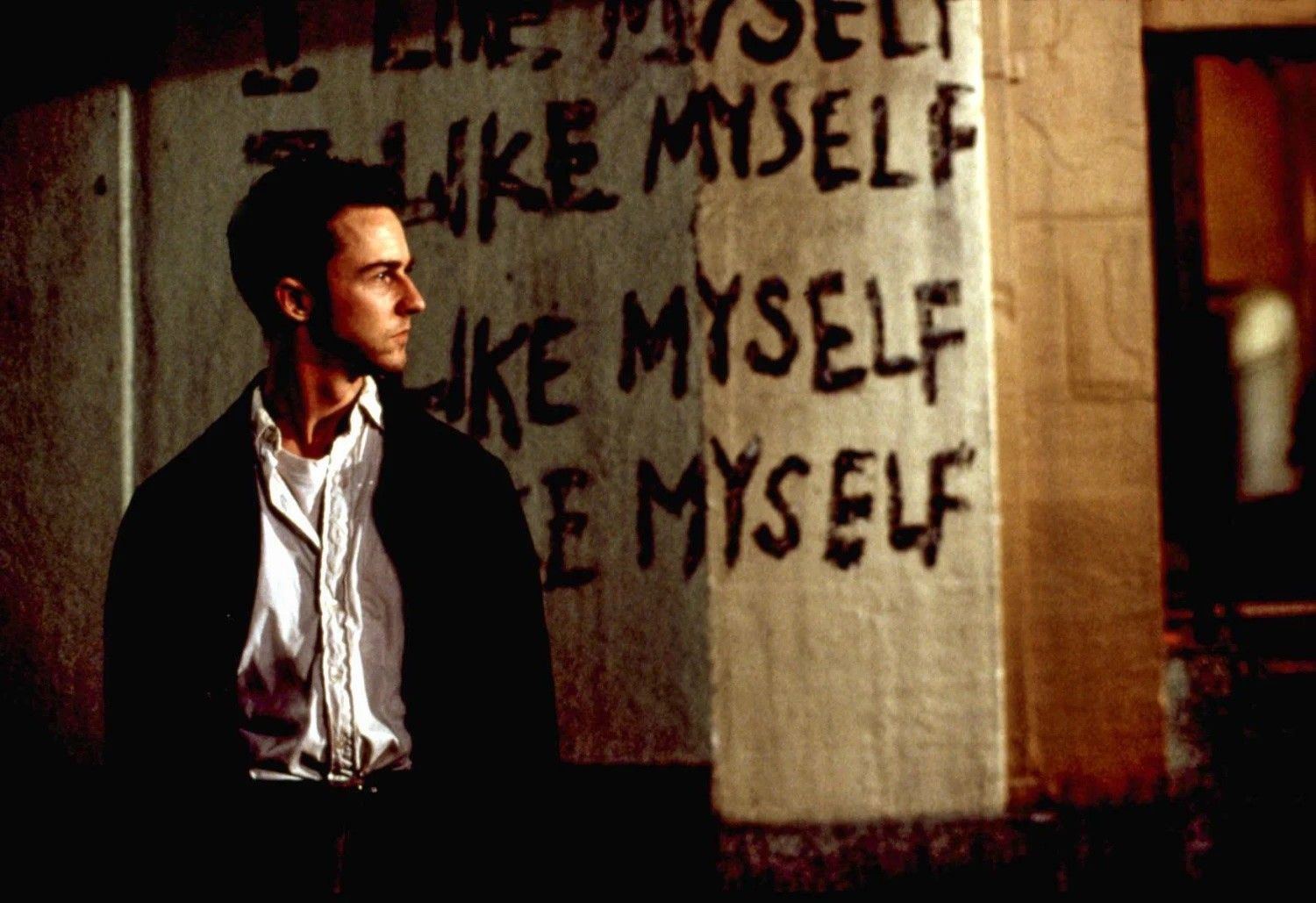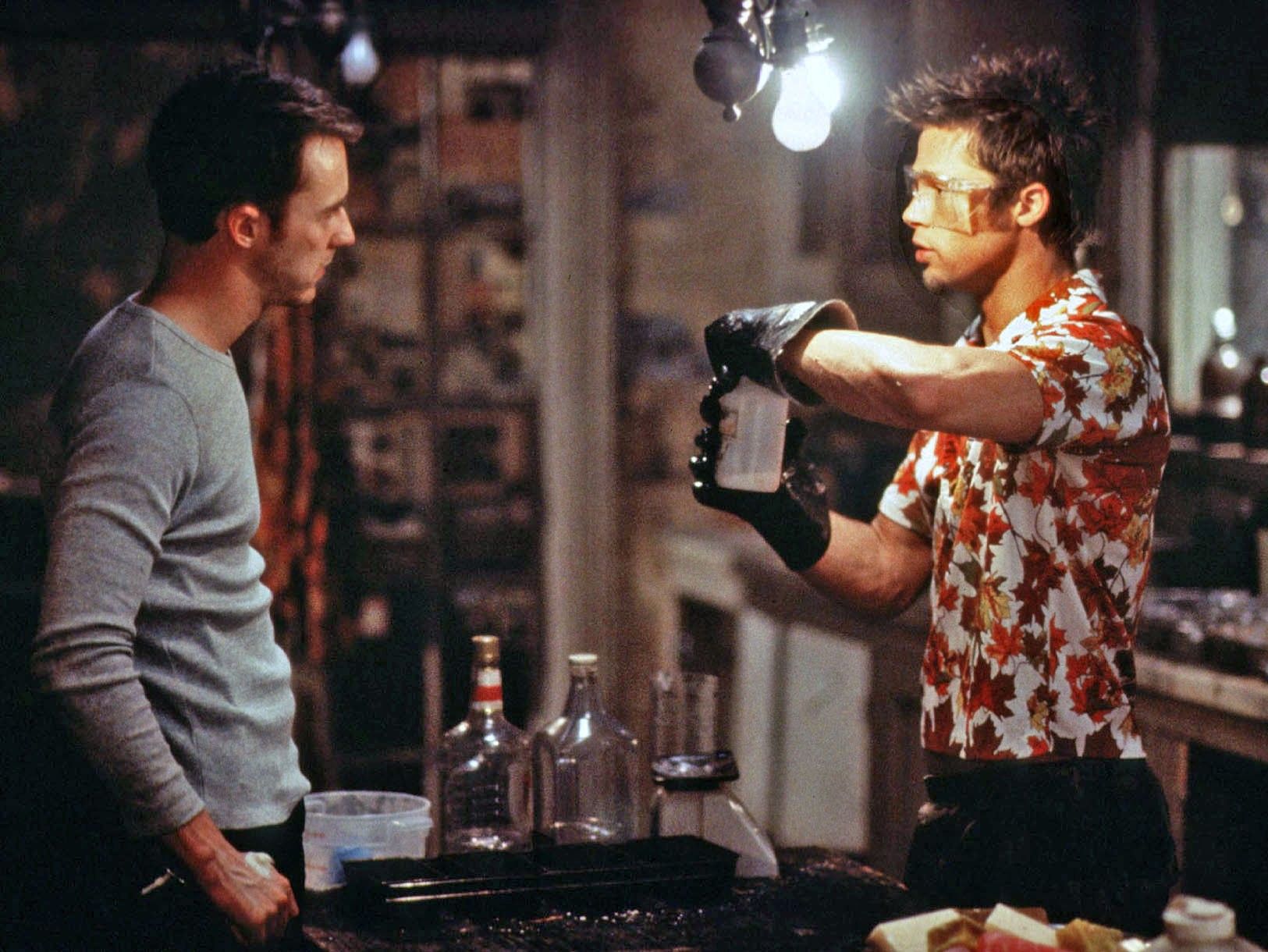
Want to learn how to adapt a novel into one of the greatest screenplays of all time? Well, you're in luck.
David Fincher’s Fight Club is one of the most talked-about and celebrated films in cinema history, and there is a good reason for that. Not only are Fincher’s visual style and Jeff Cronenweth’s cinematography masterful, but the screenplay is tight and deliberate.
Adapted from Chuck Palahniuk’s novel of the same name, screenwriter Jim Uhls wrote the screenplay, bringing the book’s themes of existentialism into the clever dialogue. While writing an adaptation might seem easy to some, it can be challenging to condense a novel into a 139-minute long screenplay. Luckily, Jim Uhls and Chuck Palahnuik have a few writing tips for you.
Check out this video from Outstanding Screenplays that breaks down their writing process and some great tips that could help you further your skills as a screenwriter:
1. Start with “What if...?”
Throughout my time as a writer, the two main questions I ask myself are "What if...?" and "So What?" Those two phrases have a power to them like no other, and Palahniuk agrees.
Palahniuk asked himself: “What if there was a place you could go and get into a fight as casually as you would go ask someone to dance? What would the rules be for that place?”
Let your imagination run wild, but make sure there is a purpose behind that "What if..." as you start to form your ideas into a shape.
2. Your most embarrassing life experiences can become the most interesting stories.
Life is one embarrassing moment after another, but that doesn't mean there isn't value in those seemingly bad experiences. On a camping trip, Palahniuk got into a fight and showed up at work the next day with a "smashed up” face. This is how the idea for Fight Club was born.
Many filmmakers and creatives have emphasized how important it is to go out into the world and experience what it has to offer us even if that does mean looking back and cringing a bit.
3. Write about your unusual personal experiences with people.
Palahniuk actually attended the support groups for terminally ill people, and he experienced the feeling that “[n]o matter how shitty and boring my life was, at least I didn't have cancer.”
Everyone is going through something. Attending free events or sitting in the park to people-watch is a great exercise for your creative muscle. It can help build empathy for people you don't know, which can then be translated into your characters.
4. Secret societies are always an interesting theme for the audience.
Although Palahniuk was a member of the Cacophony Society (whose ideas became the basis for the fictional organization Project Mayhem), we don't often find ourselves involved in secret societies.
Instead, you can find thematic meaning in societies that form around conspiracy theories. Most of their ideas and beliefs are published online, providing you with endless material to read to understand the themes behind their mission.
5. When writing adaptations, go through the book with a highlighter and decide which scenes are you going to use.
It's one of the greatest challenges of adaptation, because not everything is going to make it into the screenplay. You will have to be able to break down what makes these important moments that shape the story and which moments can be seen as insignificant. Then you need to translate those scenes into a screenplay, which means you can only use external behavior and visual cues. It's hard but can be done.
6. To find a character's voice, try to write “outside the script.”
Write extra scenes with that character that are not going to be in the script. Write a specific interview for the character which will make them come alive. Understanding who your character is without having to think about it too much will help you write a strong, fully realized, and complex character.

7. For writer’s block, Jim Uhls uses the process called “the scent of blood.”
Uhls will start writing the key scenes first out of order to get an idea of what has to happen as he begins writing. Once he starts to write, he is in the script immediately, allowing the screenplay to grow from the inside instead of on page one.
8. “Until you get some pushback, you don't feel like you're pushing hard enough.”
If you get pushback from a producer or a studio that you crossed the line with a scene or dialogue, it’s not necessarily a bad thing. It’s just proof that you're doing your job. Feedback and critics are unavoidable and necessary in the creative field.
The constructive pushback will help you sharpen your skills and intuition as a writer.
9. A great way to test your idea is to tell it at a party, and people will vie for a chance to relate some aspect of their life to it.
Humans love to relate to one another's experiences if they find them relatable.
A great anecdote doesn't leave people speechless—it leaves them competing to tell a better version of your story. That’s when you know you have something really big.
10. Think of the themes that are not yet addressed in movies, and write about those.
The main reason why Fight Club became such a phenomenon was that it was addressing themes like "rough play," "secondary father," and other aspects of men's lives, and reinvented them from a new perspective.
Sure, the themes of masculinity in the modern age of consumerism seem a bit worn out, but is there another feeling that you feel isn't be addressed in film and TV? Talk about that. Whether it's a universal feeling or not, it is always intriguing to see a new, fresh perspective on a feeling that some of us are aware of but don't know how to talk about.
Let us know in the comments below if you have any other tips on adapting that you would like to share!
Your Comment